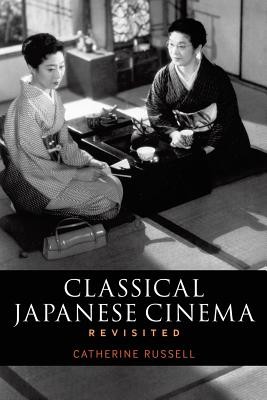
- Išsiųsime per 10–14 d.d.
- Autorius: Catherine Russell
- Leidėjas: Bloomsbury Publishing PLC
- ISBN-10: 1441133275
- ISBN-13: 9781441133274
- Formatas: 15.2 x 22.6 x 1.5 cm, minkšti viršeliai
- Kalba: Anglų
- Extra -15 % nuolaida šiai knygai su kodu: ENG15
Atsiliepimai
Aprašymas
Catherine Russell's highly accessible book approaches Japanese cinema as an industry closely modeled on Hollywood, focusing on the classical period - those years in which the studio system dominated all film production in Japan, from roughly 1930 to 1960.Respectful and thoroughly informed about the aesthetics and critical values of the Japanese canon, Russell is also critical of some of its ideological tendencies, and her analyses provide new insights on class and gender dynamics. Russell locates Japanese cinema within a global system of reception, and she highlights the importance of the industrial production context of these films.
Including studies of landmark films by Ozu, Kurosawa and other directors, this book provides a perfect introduction to a crucial and often misunderstood area of Japanese cultural output. With a critical approach that highlights the "everydayness" of Japanese studio-era cinema, Catherine Russell demystifies the canon of great Japanese cinema, treating it with fewer auteurist and Orientalist assumptions than many other scholars and critics.
EXTRA 15 % nuolaida
Kupono kodas: ENG15
Akcija baigiasi už 6d.15:29:09
Nuolaidos kodas galioja perkant nuo 10 €. Nuolaidos nesumuojamos.

- Autorius: Catherine Russell
- Leidėjas: Bloomsbury Publishing PLC
- ISBN-10: 1441133275
- ISBN-13: 9781441133274
- Formatas: 15.2 x 22.6 x 1.5 cm, minkšti viršeliai
- Kalba: Anglų
Respectful and thoroughly informed about the aesthetics and critical values of the Japanese canon, Russell is also critical of some of its ideological tendencies, and her analyses provide new insights on class and gender dynamics. Russell locates Japanese cinema within a global system of reception, and she highlights the importance of the industrial production context of these films.
Including studies of landmark films by Ozu, Kurosawa and other directors, this book provides a perfect introduction to a crucial and often misunderstood area of Japanese cultural output. With a critical approach that highlights the "everydayness" of Japanese studio-era cinema, Catherine Russell demystifies the canon of great Japanese cinema, treating it with fewer auteurist and Orientalist assumptions than many other scholars and critics.




Atsiliepimai